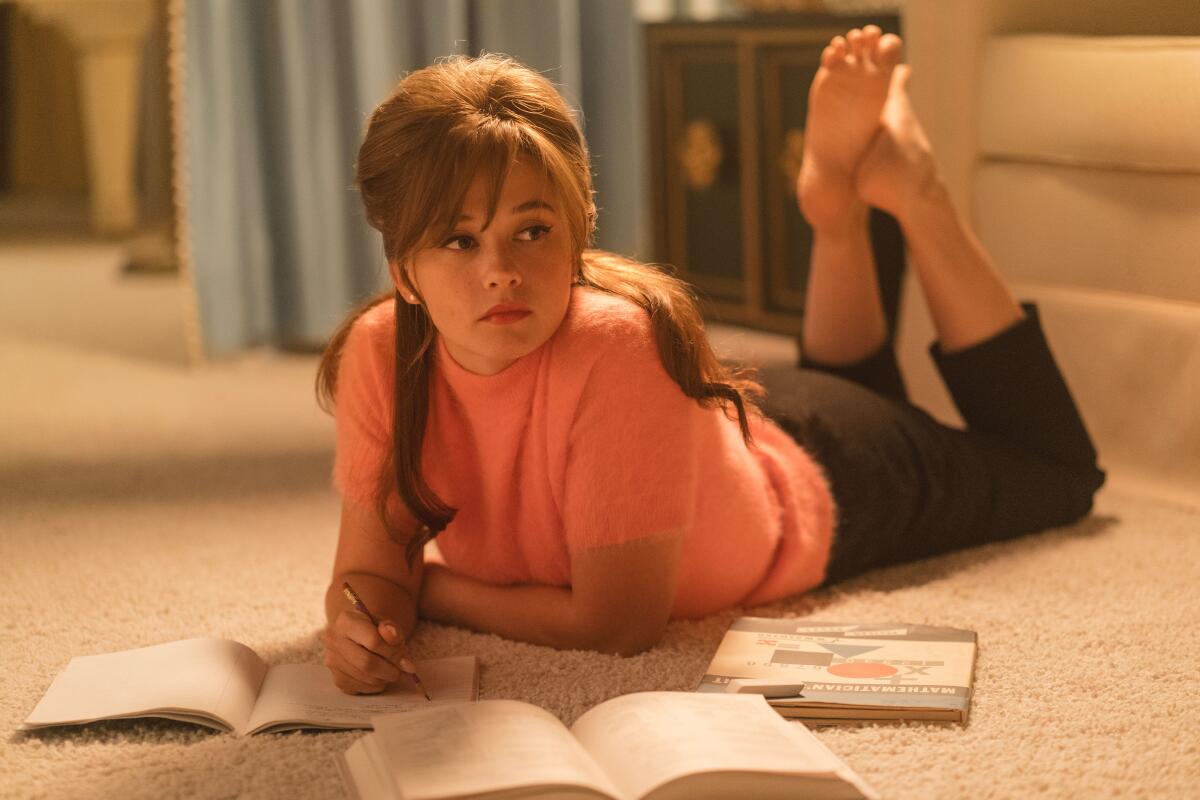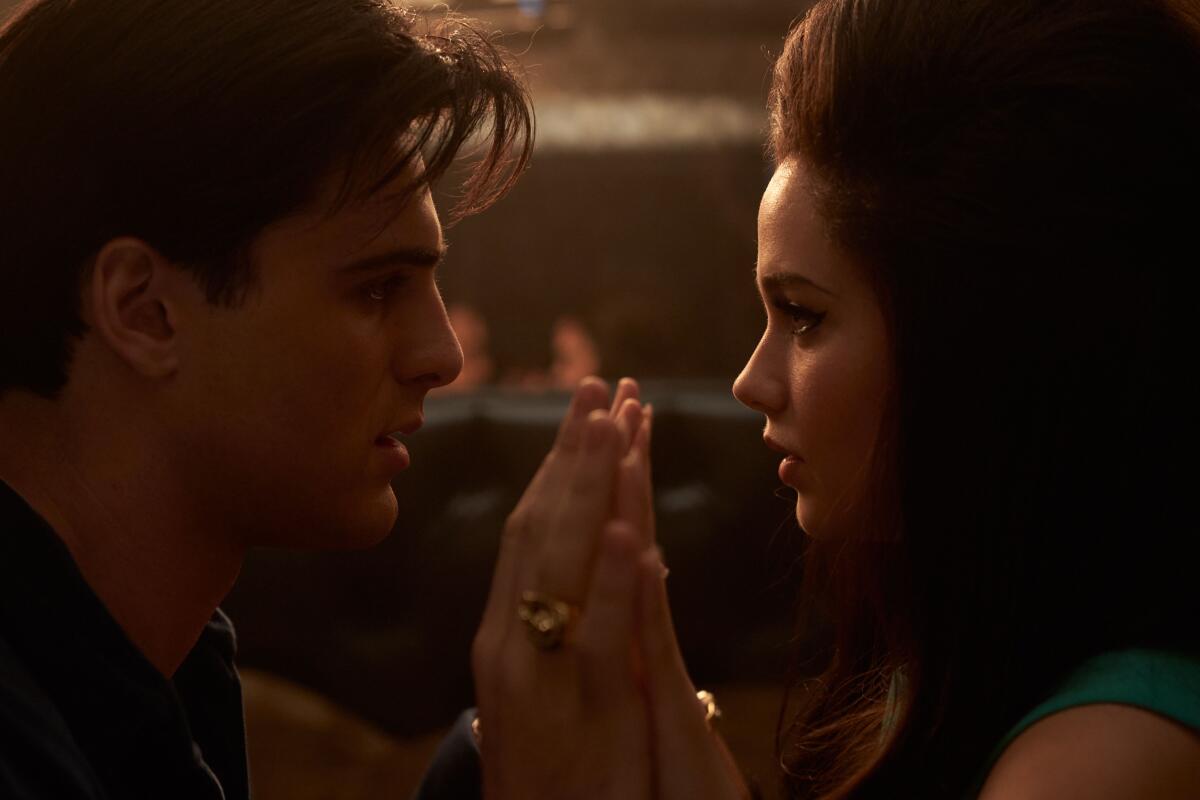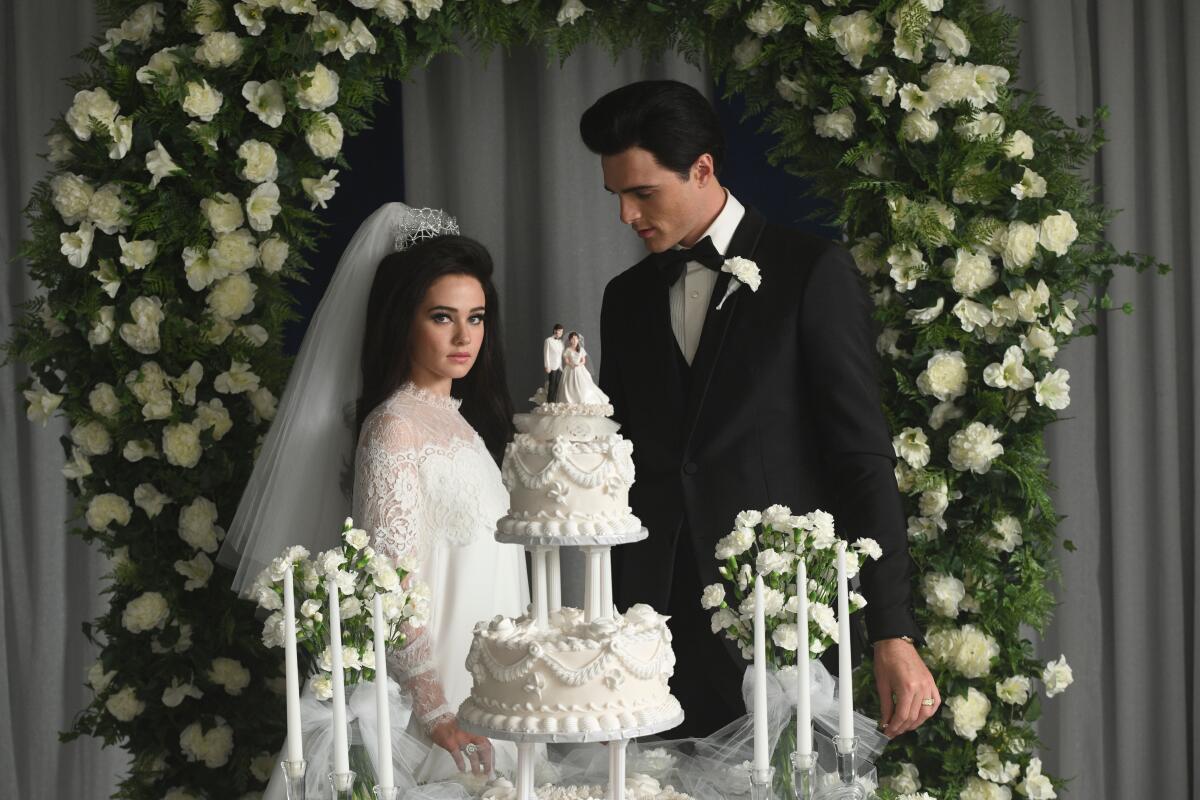assessment: ‘Priscilla,’ Sofia Coppola’s optimal movie in years, shimmers with beauty and heartbreak
one of the vital first songs you hear in "Priscilla," Sofia Coppola's wistful dream of a film about Priscilla Presley, is a canopy of Frankie Avalon's "Venus," pouring from a snack bar jukebox in 1959. Coppola has all the time had a way with anachronistic, subtly discombobulating musical decisions, however other than the band (the French community Phoenix, fronted by way of the director's husband, Thomas Mars), this selected track is duration-perfect, and piped in without delay from Presley's personal recollections. Sitting there at the bar, she's nonetheless simply Priscilla Beaulieu (Cailee Spaeny), a shy, unassuming 14-12 months-ancient Air drive brat who's currently moved from the States to Wiesbaden, West Germany. all of sudden a stranger methods her and asks if she likes Elvis Presley. "Of course, who doesn't?" she replies, no longer long after the song has cycled through its most salient passage: "Venus, in case you will / Please ship a little woman for me to thrill."
Eerily (and a bit queasily), these lyrics foreshadow an come across for you to continually change Priscilla's life. a number of nights later, she finds herself at a party thrown through Elvis himself (Jacob Elordi), who's been transferred to Germany right through his military carrier and hosts standard gatherings for his fellow American expats. but something greater than homesickness seems to be motivating Elvis' immediate and chronic interest in Priscilla, which doesn't abate when he finds out that she's a ninth-grader (and 10 years more youthful than he is). "Why, you're only a baby," he says, to which she replies with a curt, wounded "Thanks." He's amused via her spunk. She's floored and, sure, delighted by means of his consideration.
With outstanding persistence, pointillist element and a disappointment so soft and luxuriant which you could well-nigh drape it around your self like a mantle, "Priscilla" charts this young woman's battle over the subsequent 14 years to dangle on to that consideration. adapted by means of Coppola from "Elvis and Me," Presley's 1985 memoir (co-written with Sandra Harmon), here's, unsurprisingly, the story of a lifestyles lived in the shadow of 1 of the world's most brilliant entertainers. As such, it's about the intoxication of too-young love, the pitfalls of celebrity, the ravages of addiction and, inescapably, the abuse of vigour. generally, notwithstanding, it's about disillusionment: the gradual weakening and fall down of a gorgeous mirage.

Cailee Spaeny within the movie "Priscilla."
(A24)
but Coppola, certainly not one to fall lower back on easy, moralizing judgments — nor to disentangle unhappiness from joy, its natural partner — doesn't deny or condemn that mirage's seductive vigor. Nor does she take the effortless route of mistaking a young woman's naiveté for passivity or victimhood, traits that may scarcely be greater absent from Spaeny's intensely watchful efficiency. Spaeny ("Mare of Easttown"), who won the Volpi Cup for superior actress on the Venice international movie festival remaining month, doesn't overemphasize the young Priscilla's disbelief at what seems to be her impossible respectable fortune. If she's shocked that Elvis desires whatever thing from her — and that whatever isn't sex, given his refusal to sleep along with her — she then again conveys a virtually otherworldly self-possession.
while Baz Luhrmann's maximalist biopic "Elvis" recently reminded us of the man's present for sending ladies all over the world into screams and convulsions of erotic ecstasy, that you may't think about Spaeny's Priscilla giving herself over to such an impulse. For her, the gift of Elvis' consideration is sort of a secret too precious to be broadcast so coarsely — or indeed shared with anyone else at all. Drifting down a hall at her German faculty, a world that appears even drabber and uglier after the wonders she's considered, this Priscilla seems misplaced in a dream, essentially the most private of reveries.
Elordi, for his part, gives us a rock 'n' roll king necessary of those reveries. You've not ever seen a more towering Elvis — the actor stands 5 inches taller than the actual deal did, making him seem even greater than life — or, originally, a extra achingly susceptible one. In a situation that's awkward for all involved (the viewers protected), it's Elordi's delicate-spoken gentility that disarms more advantageous judgment. He gets parental permission to peer Priscilla many times, successful over her strict captain father (Ari Cohen) and quietly doubting mom (Dagmara Dominczyk) along with his courtly Southern manners and reassurances of honorable intent. Coppola, devoid of passing overt judgment, trusts us to be effectively appalled — however also to take note, on some degree, the disorientation of being swept up in a celebrity's orbit.

Jacob Elordi and Cailee Spaeny within the film "Elvis."
(A24)
It's complicated no longer to get swept up alongside Priscilla, too, while Coppola's clear-eyed gaze keeps pulling us back. Even during this swoony quasi-courtship, the cracks in Elvis' Prince Charming veneer are all too apparent. A 12 months or so later, his military provider ends and he returns to the U.S. and his (flailing) Hollywood film career, vanishing for an extended stretch from Priscilla's life. "might be it's time to ignore him," her mother sensibly suggests. but Priscilla, filling her notebooks with romantic doodles whilst she reads about Elvis' on-set fling with Ann-Margret, is hopelessly a long way gone. And when Elvis returns to her, he does so in full and irresistible drive, inviting her to come back talk over with him at Graceland. a protracted seek advice from results in a everlasting relocation, as Priscilla's parents agree to let her finish excessive college in Memphis.
The relaxation is historical past: startling, inevitable and unbearably sad. It's also the part where "Priscilla" turns into most recognizably a Sofia Coppola movie, which is to assert an extended live in a meticulously gilded cage. And even through the necessities of her previous cages — the opulent 18th century Versailles of "Marie Antoinette," the ennui-soaked West Hollywood enclave of "someplace" — the Graceland she shows us, bathed within the muted colorings and dim shadows of Philippe LeSourd's cinematography, is a singularly haunting jail. There's an early, teasing and quintessentially Coppola-esque shot of Priscilla's naked ft, her toenails freshly painted, sinking into the carpet and barely leaving an imprint. Even after this iconic piece of Tennessee real estate has turn into her home, Priscilla slinks via its rooms like a stranger, as quiet and overlooked as a phantom.
When Elvis is away, which he is tons of the time, the estate is as hushed as a mausoleum; when he's home, buoyed by means of his rambunctious "Memphis Mafia" and doted on by using his ever-latest grandmother (Lynne Griffin), it's a in no way-ending birthday party. In between is the elusive truth of Elvis and Priscilla's romance and eventual marriage, the specifics of which Coppola dramatizes with a damningly straight face. There are the drugs that Elvis pops and, with increasing regularity, shares with Priscilla. There are his spiritual and highbrow aspirations, which he tries in vain to get Priscilla to share, and additionally his unexpected eruptions of mood, a few of which lead to actual violence.

Cailee Spaeny and Jacob Elordi within the movie "Priscilla."
(A24)
particularly there's a chilling ambiance of actual repression and psychological control, essentially the most fascinating manifestation of which is Elvis' refusal to have sex with Priscilla except they're married. if you're reminded of "Marie Antoinette," Coppola's earlier movie about a younger woman ensconced in an extended-unconsummated relationship, the difference is crystal-clear, particularly that Elvis and Priscilla are most likely in love. The tragedy of that love is equally clear: Elvis, in thrall to his addictions and uncertain of who he desires to be, is just too psychologically ravaged to supply greater than the smallest piece of himself to Priscilla. And yet the film leaves little question that what these two shared, for all its wrenching imbalance of vigour, consideration and feeling, changed into whatever thing neither one might face up to or deny.
In monitoring the contours of that love, Coppola's filmmaking throws off a whispery new self belief. Spaeny's Priscilla need to age about 14 years in exactly under two hours, a process that takes region just about imperceptibly underneath a movement of black bouffant wigs and shimmery gowns — emblems of Elvis' insistence on recasting Priscilla in his own movie star picture. (His songs, youngsters, are conspicuously absent, apparently because of rights concerns; it's a setback that feels increasingly like a strength, a refusal to let Elvis outline the movie's parameters.) Time passes in a brisk blur of tabloid headlines, album covers and ripped calendar pages, but the world that Coppola builds for her heroine holds together with eye-catching coherence, right up until the second it's able to fall apart.
And fall apart it does, with a swiftness that can go away you and "Priscilla" itself feeling a bit destabilized. there's lots greater to Priscilla Presley's story left untold here: motherhood (Lisa Marie looks in short here, at diverse ages), her own infidelity, her future romances, her friendship with Elvis until his loss of life in 1977, her film profession, "The naked Gun" motion pictures. (The re-creations alone would advantage a "Priscilla" sequel.) but with piercing count number-of-factness, Coppola ends this movie, her strongest in additional than a decade, at simply the right second: when a dream ultimately dies, and the excitement is well and truly long past.
'Priscilla'
rating: R, for drug use and some language
running time: 1 hour, 50 minutes
taking part in: begins Oct. 27 at AMC the Grove 14, la
Comments
Post a Comment